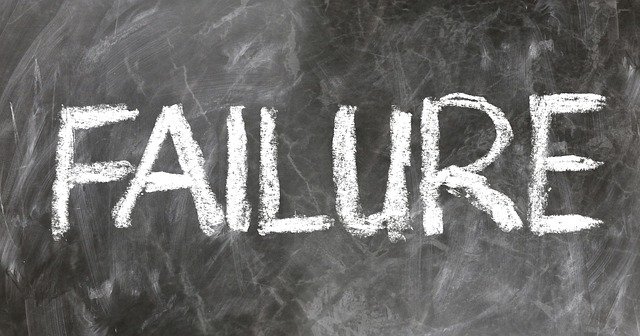
Once upon a time, I coached high school track and field. I was a certified USA track and field coach, and I loved it.
The hurdle event is one of the most challenging things to run. There are ten hurdles at the height of 83.8 centimeters (33 inches) on a straight course of 100 meters. Just for fun, try jumping over something almost three feet high ten times while running as fast as you can, and you’ll see what I mean by challenging.
One day, at an invitational, one of my best female runners knocked over every one of the ten hurdles. The last one actually knocked her over. She was hurt. Not seriously, but both her pride and her knees were bleeding. I could tell that she wasn’t going to get up to finish, so I yelled (meaning I was loud, not mean), “Get up! Finish the race!” She did, and I was never more proud of her.
She came up to me embarrassed and crying and said, “Coach, I am a pathetic failure!” I interrupted her and said, “No, you’re not, but tell me what you learned from today’s race.”
She looked up at me, wiped her nose, and said, “To always finish, no matter what.”
Yep.
For a lot of people, the word fail is the other four-letter “f” word. You probably didn’t wake up this morning and say to yourself, Hey, I hope I fail and fail gloriously today!
Nobody wants to fail.
In fact, the fear of failure is what keeps many people hiding in the shadows. We don’t want to be embarrassed. We don’t want to look like fools. We don’t want to hear that voice in our head (which often is the voice of our father or mother) saying, “How many times have I told you to work harder? Or pay more attention? Or ____________ (you fill in the blank)?
But . . .
What if failure is good for you?
To be clear, I’m not encouraging you to set out to blow it or fall short intentionally. Please don’t make failure your life’s goal.
However, here are two undeniable human realities: a) we all fail, b) we can go through failure or grow through failure.
So, if we all fail, and we do, then a wise person must decide what they will do when they miss the mark.
Here are some unhealthy options:
- Deny it. (I have no idea what you’re talking about. What failure?)
- Ignore it. (There’s nothing here to see. These are not the droids you are looking for.)
- Lie about it. (I didn’t screw up.)
- Wallow in self-pity and beat yourself up. (I suck. I’m pathetic!)
- Blame others. (They suck. It’s not my fault.)
- Blame God. (If You’re in charge, then You’re ultimately responsible, not me.)
If you’re wondering, you might feel better choosing one of the above, but you won’t be any better.

What’s the healthy alternative?
- Own it, and then learn from your mistakes.
Try saying this out loud, “I failed.” (Go ahead, try it again. I promise, it won’t hurt.)
Did you notice anything? First, fire did not fall the sky and strike you down. Second, the world is still rotating. Third, and this is important, confession truly is good for the soul.
By the way, please don’t admit to your failure with a self-defeating I-suck-and-I-deserve-to-be-struck-with-fire attitude.
Just own it with humility as you remember that God’s specialty is redeeming, restoring, and renewing screw-ups like you and me.
Okay, you failed. Welcome to the human race.
Now, what did you learn? Failure can be a great teacher.
Just wipe your nose and learn to finish the race. Coach Jesus isn’t nearly as surprised by your failures as you are, and He’s not at all mad. Not even a little.

Good people might fall again and again,
but they always get up.
It is the wicked who are defeated by their troubles.
Proverbs 24:16 (ERV)




I like to think of failure as an unexpected outcome. You put work into and researching how you will approach a problem or a project.
You gather the information and digest it with your background of the past. You make a decision on what you will do. You put that into effect. You see the result is not what you expected. You go back and repeat the circle. Its called the OODA loop used by the top air-force fighter pilots. You keep doing this untill you get the required result. You keep refining your approach and getting better everytime and that is the trigger to keep going.
Love this, Gerard. Thank you for adding to the conversation.
Pingback: The Top 10 Leadership Posts I Read The Week Of August 30th | Brian Dodd on Leadership
Thanks coach. Never quit.
It’s SENIOR-OLD-GUY-BOOMER-PASTOR-COACH to you, Mike! Love you, dude.
Love you, dude.
Thanks Kurt! Especially appropriate since I have a new computer and I haven’t figured things out yet. Tempted to call myself names. You are right–it comes from my past. Thanks for sharing.
Hi Kay, I feel your pain! Hugs!
Hugs!
Great message Kurt. The humility to admit failure (or being wrong – which is just another form of failure) is a tough one – and something that is in short supply these days. But failure is a great teacher – IF we are humble enough to learn from it.
As Edison said after 1,000 experiments developing the light bulb
“I didn’t fail 1,000 times, I just learned 1,000 ways it WOULDN’T work!”
I love that quote from Edison. Love you too, Bob!
Thanks for the encouraging words today Kurt!
You bet, Lynn. Love you!
Dear Pastor, Thank you for the encouragement. Amen
You’re welcome, Cindy. Glad it encouraged you. Have a Jesus-filled day!